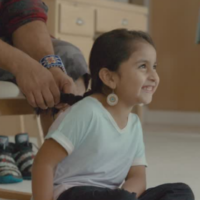
This month, Oregon Department of Human Services (ODHS) honors the vital role of resource families in creating safe and stable environments for children and young adults. In Oregon, adults who care for children in foster care are called resource parents, emphasizing the many important roles they play in supporting children and their parents, creating safe environments for them to thrive, and helping maintain relationships with their families of origin and communities.
Supportive relationships are particularly important for young people who have experienced trauma and can change the trajectory of a life. According to Harvard’s Center for the Developing Child, supportive and responsive relationships help children develop resilience in the face of adversity.
As Governor Tina Kotek’s proclamation in recognition of National Foster Care Month states, “Oregon’s children are all of our children, and we have a responsibility to create safe, nurturing environments that enable them to thrive.”
Resource families come from a variety of backgrounds and can be part of a child’s extended family. Kinship care has become a priority nationally as research shows that children placed with relatives experience less trauma and have better behavioral and mental health outcomes. ODHS prioritizes recruitment of a wide range of resource families to ensure culturally diverse and affirming environments for children and young adults in foster care.
“It is important for children to be in resource families that recognize the importance of maintaining culturally affirming community and kinship connections,” said Aprille Flint-Gerner, Child Welfare Director. “I deeply appreciate Oregon resource families from all backgrounds for contributing to the lives of young people.”
Because resource parents play such a vital role in child welfare, ODHS has invested in programs to support them and improve retention. Two examples include the Response Support Network pilot project, and the Respite Program. The Response Support Network pilot project provides on-call behavioral health supports for children with complex behavioral and mental health needs. The Respite Program, implemented in 2023, supports resource parents and families of origin by training and certifying providers to make care more accessible and available.
National Foster Care Month is an opportunity to:
- Consider making a difference by becoming a resource parent, providing respite care to families, or volunteering in other ways.
- Lift up and thank resource parents and relative caregivers for their essential role in strengthening and reunifying families.
- Honor the family, community and cultural connections for children and young people in foster care.
There are many ways to support children and young people experiencing foster care and uplift families involved with Child Welfare. Visit our website, Foster.Oregon.Gov, to learn more, or call 1-800-331-0503 to get involved.
About the ODHS Child WelfareProgram
The Oregon Department of Human Services Child Welfare Program is committed to transforming itself to better support the individual needs of families and to best serve Oregon’s children and young people.















